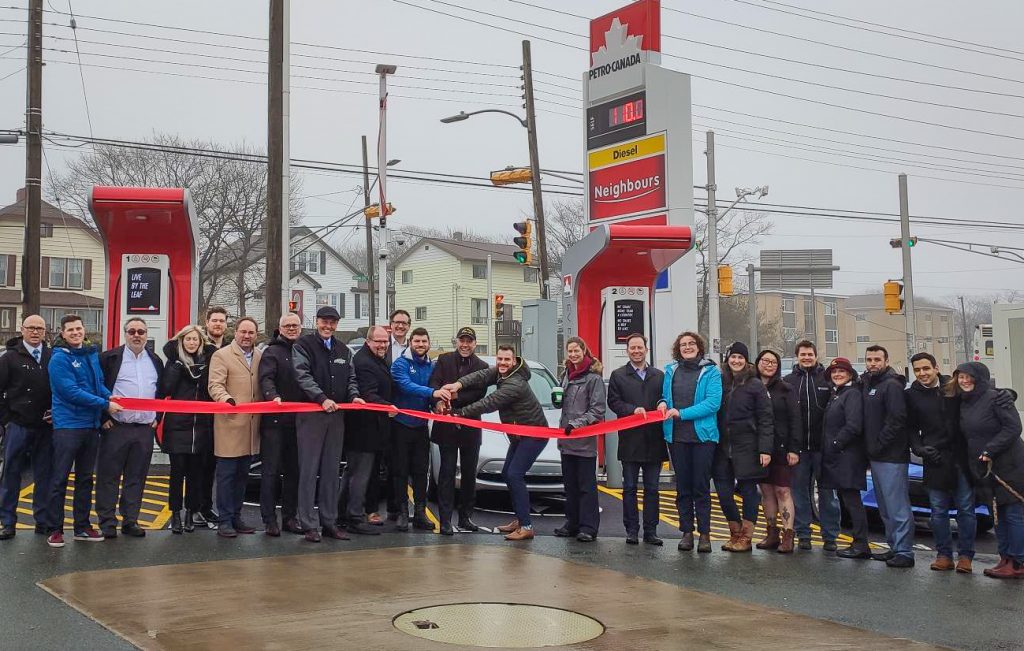Electric vehicle charging speeds towards the future
Spryfield community gets a boost
Today, MP Andy Fillmore joined members of the Spryfield community, the Electric Vehicle Association of Atlantic Canada, and electric vehicle (EV) experts from Clean Foundation’s Next Ride program to unveil Nova Scotia’s fastest EV charger, and the Atlantic terminus of Petro Canada’s Electric HighwayTM.

Fast charging network expands
Electric vehicle charging options just got brighter for EV owners in Spryfield, the Halifax Regional Municipality, and for tourist traveling between Halifax and the South Shore. The region’s newest charging station is located at the Petro-Canada in Spryfield, 231 Herring Cove Road. The station completes the coast to coast charging network, coined the Electric HighwayTMby Petro Canada. It complements other existing public chargers across the country, filling fast charging gaps in areas such as Spryfield. With this charger now open to customers, Nova Scotia’s fast charging network boasts 22 direct current fast chargers (DCFCs), with more planned or under construction. DCFCs, also known as Level 3 chargers, are ideal for long distance travel when the quickest rate of charge is needed. They input electric current directly into car battery, bypassing the onboard charger.

Futureproofed charging infrastructure
The significance of the site’s 350kW power output demonstrates good planning for the future. The charge rate is seven times faster than the majority of DCFCs currently active in Canada, with the majority offering a 50kW rate. Charging capacity of an EV can vary depending on the model. For instance, Clean Foundation’s 2019 Chevrolet Bolt can accept a maximum charge rate of 50 kW. The car would only draw up to that amount when plugged into a fast charger with a greater capacity. As battery technology improves, it’s reasonable to assume that all models of EVs will be able to accept faster charging rates. The key to widespread adoption of EVs is not only having an expansive charging network but one that can support the fast charging rates of the future.
Factors such as vehicle make and model, current state of charge, outside temperature, and battery temperature will impact the speed at which they charge. Most manufacturers claim up to 80% charge within 30 minutes at a DCFC. Petro-Canada states that the chargers will add 4km to 30km per minute of charge. The site can accommodate two vehicles charging at once and offers two universal standard connectors (CCS and CHAdeMO). Petro-Canada charges $0.25 per minute plugged in at this station.
To find out more about EV charging in Nova Scotia, including a map of current public chargers, check out evassist.ca.

Recent Comments